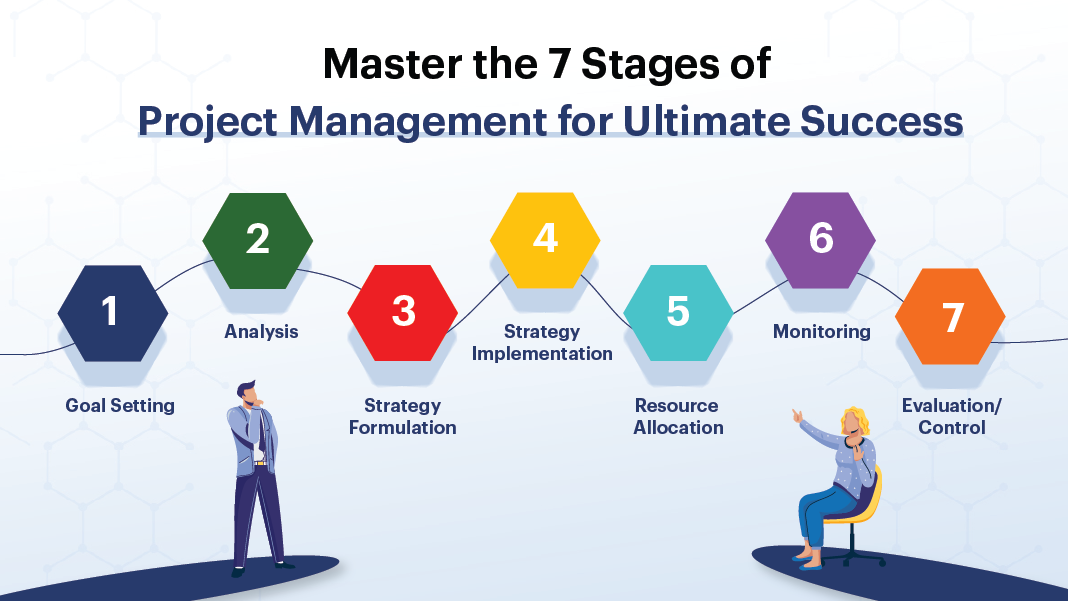These days, in the world of project management, mastering the process is quite a crucial task because it helps achieve the best success. So, whether you are managing an IT project or leading a construction endeavor, understanding the seven stages of project management can significantly enhance efficiency and outcomes.
So, if you are looking to know about them in a better way, then you should not miss having a look at this post. It’s because through this you will get to learn about all the things for which you have been looking for a long time.
7 Stages of Project Management for Ultimate Success
The stages are very important because if you have the best idea about them, only then will you be able to get the possible success in your business. So, let’s know about them:
1. Project Initiation
Project purpose, risk, and stakeholders are established at the project initiation stage. The value and feasibility of the project are established at the project initiation stage. Minimum requirements, objectives, and scope of high importance at this stage are deliverables.
What is the scope of the project?
Project scope is the detailed list of deliverables or functionality to be delivered in order to fulfill project requirements. It sets the boundary of the project, i.e., activities, resources, time, and cost. It averts scope creep, which causes delays and extra costs.
2. Project Planning
In this, the overall project plan is formed, including timelines, resources, budget, and risk management plans. Some milestones and deliverables are written down to be implemented appropriately.
What is the IT project life cycle?
For IT project management, the life cycle would actually be planning, design, development, testing, deployment, and maintenance. All these phases are carried out in detail so that the final product is according to user requirements and performs as anticipated.
3. Project Execution
Implementation is where the plan is implemented. There are teams doing deliverables, monitoring progress, and solving issues, if any. There should be proper team coordination and communication to remain on track.
4. Monitoring and Controlling
Monitoring of the plan is done at this stage. Deviations are verified by KPI tracking and corrective action is taken when necessary. Quality and productivity are maintained through monitoring progress at regular intervals and receiving status updates.
5. Risk Management
Risk management runs throughout the project. Risk, impact, and counter measure planning must be executed to prevent interference and guarantee the success of the project.
6. Project Closure
At the close date, the stakeholders approve and complete the project deliverables. Defects that are identified are reported and open defects are labeled as closed. A closure report is also generated, which is used in gauging overall performance and accomplishment.
7. Post-Project Review
Post-project review is evaluating how well the project has been done and learning lessons to do better in the future. Feedback is provided by stakeholders and team members to improve future projects.
Conclusion
The details about the seven stages of project management give everyone the idea that mastering them will help you in all possible ways and is essential for ultimate success. So, if you have any less information, then you can have a look at this detailed blog or otherwise look for an expert place like Tekki Web Solutions Pvt. Ltd., from where you can have the best possible assistance and feel more informed.



